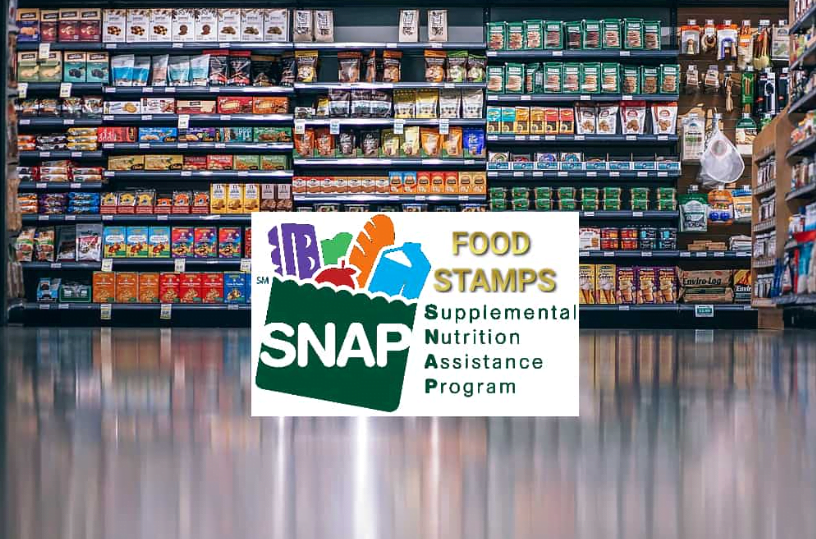Food stamps, also known as the Supplemental Nutrition Assistance Program (SNAP), are a crucial lifeline for many low-income individuals and families, providing them with essential assistance to purchase nutritious food. However, the system is not without its challenges, and occasionally, beneficiaries may encounter issues that result in a delay or interruption in receiving their food stamps. This essay explores common reasons why someone might not receive their food stamps for a specific month and potential solutions to address these issues.
I’m sorry to hear that you didn’t get your food stamps this month. There are a few reasons why this might have happened:
- You may have missed your recertification appointment. If you miss your recertification appointment, your benefits will be suspended until you reschedule and complete the appointment.
- Your income may have changed. If your income has changed, you may no longer be eligible for food stamps. You will need to contact your local SNAP office to find out if your benefits have been affected.
- There may be a problem with your case. If there is a problem with your case, such as a missing document or a technical error, your benefits may be delayed. You can contact your local SNAP office to find out more about the status of your case.
If you haven’t received your food stamps this month, the first thing you should do is contact your local SNAP office. They will be able to tell you why your benefits were not issued and what you need to do to get them.
Here are some additional tips for getting your food stamps:
- Keep track of your recertification appointment dates. You can find your recertification appointment date on your SNAP benefits letter.
- Report any changes in your income to your local SNAP office. This includes changes in your job, your hours, or your dependents.
- Keep copies of all of your SNAP paperwork. This includes your application, your benefits letter, and any correspondence from your local SNAP office.
i didn t get my food stamps this month
Access to government assistance programs, such as food stamps, plays a critical role in supporting individuals and families facing financial hardships. These programs aim to provide a safety net, ensuring that vulnerable populations can meet their basic needs. However, when recipients don’t receive their expected benefits, it can create uncertainty and stress. In this article, we explore the potential reasons why some individuals may not have received their food stamps this month and the steps they can take to address the situation.
Administrative Delays: One of the common reasons for not receiving food stamps on time is administrative delays. The process of determining eligibility, processing applications, and disbursing benefits involves multiple steps and agencies. Delays can occur due to a high volume of applications, staffing issues, or technical glitches. In such cases, it’s essential for recipients to remain patient and understand that the delay is often temporary.
Changes in Eligibility: Recipients’ eligibility for food stamps is subject to review periodically. Changes in income, household composition, or other factors can affect eligibility. If a recipient’s circumstances have changed and they haven’t updated their information with the relevant agency, it may result in the temporary suspension of benefits. In such situations, contacting the local food stamps office and providing updated information is crucial to resume benefits.
Verification Issues: To ensure that benefits are distributed appropriately, government agencies may require additional documentation or verification from applicants. Failure to provide the necessary information promptly can lead to delays in receiving food stamps. Being proactive and responding promptly to any requests for verification can help resolve such issues.
Technical Glitches or System Errors: In some instances, technical glitches or system errors may occur during the processing of benefits. These issues can be caused by various factors, such as software updates or maintenance. If recipients suspect that a technical issue is affecting their food stamps, they should contact the relevant agency or explore online platforms for updates on the situation.
Overlapping Benefits: Recipients may face situations where their benefits overlap due to changes in their circumstances or delayed processing. In such cases, it might seem as if benefits were not received for the current month. Reviewing past benefit statements and communicating with the appropriate agency can help clarify the situation.
Understanding the Importance of Food Stamps

- The Role of SNAP: Food stamps play a vital role in alleviating hunger and promoting food security among vulnerable populations.
- Assisting Low-Income Families: SNAP is designed to assist low-income families and individuals who face financial difficulties in accessing adequate and nutritious food.
Potential Reasons for Not Receiving Food Stamps
- Renewal Delay: One common reason for not receiving food stamps is a delay in the renewal process. If a beneficiary’s eligibility is not re-determined on time, it can lead to a temporary interruption in benefits.
- Income or Employment Changes: Changes in income or employment status can affect a beneficiary’s eligibility or benefit amount, resulting in a delay until the new information is processed.
- Verification Requirements: SNAP applications often require documentation to verify eligibility. Delays in providing necessary documents can lead to delays in receiving benefits.
Administrative Errors
- Application Processing Delays: Administrative errors during the application processing phase can lead to delays in issuing food stamps.
- Address and Contact Information Updates: Incorrect or outdated address or contact information can result in communication issues, causing delays in benefit distribution.
Steps to Resolve the Issue
- Contacting the SNAP Office: If food stamps are not received, beneficiaries should promptly contact their local SNAP office to inquire about the status of their application or benefits.
- Providing Necessary Documentation: Ensuring that all required documents are submitted on time can help expedite the processing of the SNAP application.
- Staying Informed: Keeping track of updates and changes to SNAP policies can help beneficiaries stay informed about their rights and responsibilities in the program.
Seeking Support from Advocacy Organizations
- Non-Profit Assistance: Beneficiaries can seek support from non-profit organizations that specialize in SNAP advocacy to navigate the application and appeals process.
- Legal Aid: Legal aid services can provide legal representation and support in case of disputes or delays in receiving food stamps.
Conclusion: SNAP, or food stamps, is a vital program that supports low-income individuals and families in accessing nutritious food. However, delays and interruptions in receiving benefits can sometimes occur due to various reasons, including administrative errors, application processing delays, and changes in circumstances. It is crucial for beneficiaries to be aware of their rights and responsibilities, stay informed about SNAP policies, and promptly address any issues that may arise. Seeking support from advocacy organizations or legal aid services can also be helpful in resolving disputes or delays. Ultimately, ensuring the efficient and effective distribution of food stamps is essential to alleviate hunger and promote food security for those in need.

